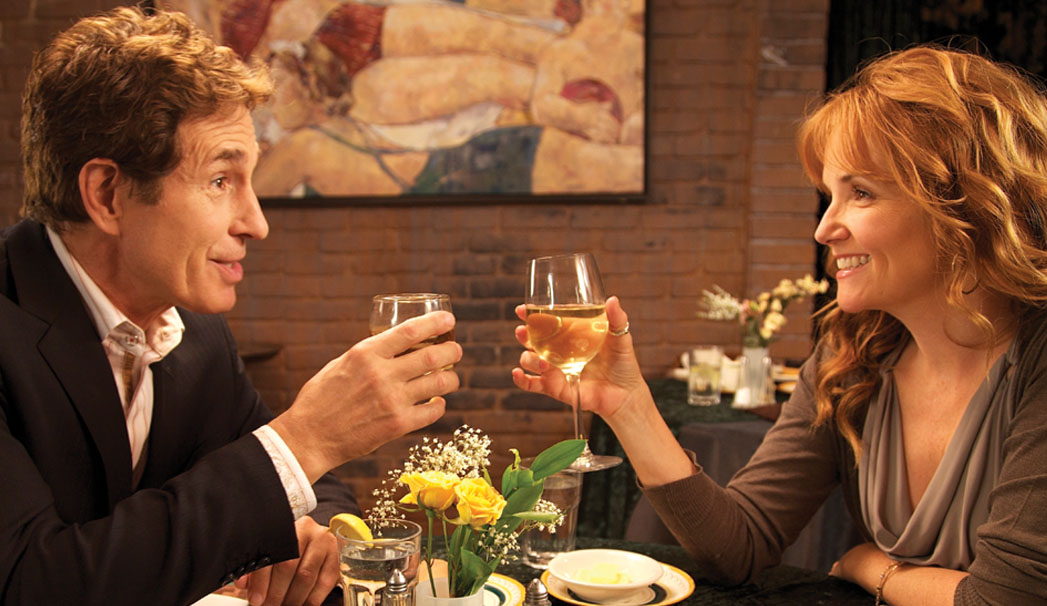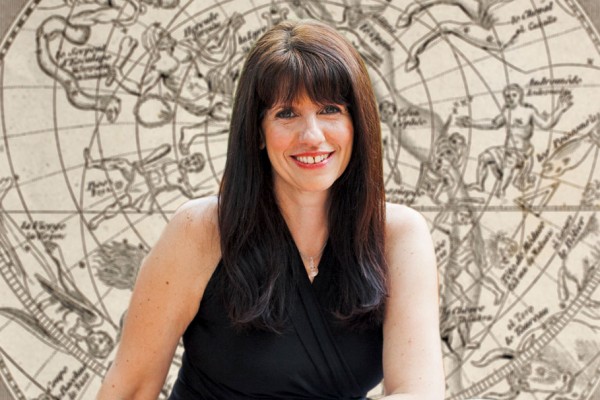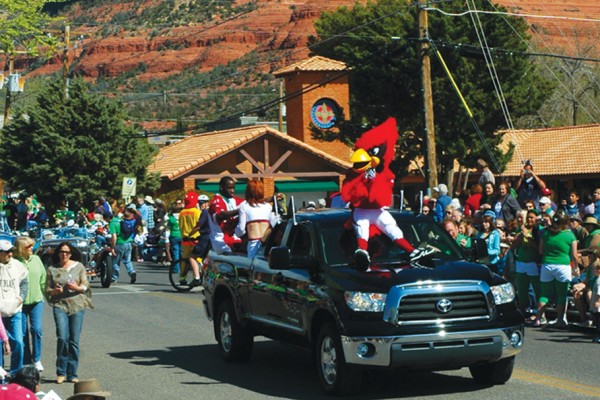More than 145 films will be screened at the 18th annual Sedona International Film Festival, Feb. 18-26. Expect celebrity appearances, parties and workshops. Turner Classic Movies host Robert Osborne returns this year as part of the Classic Series, screening films All About Eve, HUD and Summertime. Other series include Sedona Green, Documentaries That Make a Difference, Family Fun, World Cinema and Tribute. But it’s the festival’s additional venue that seems to be generating the most buzz. While the majority of the films will be shown at familiar venues across Sedona, the festival will debuted the Mary D. Fisher Theater of the Sedona International Film Festival (2030 W. SR 89A) next door to its headquarters. The 135-seat theater includes a concession stand that will sell beer and wine along with the usual theater fare; it will host movies and workshops during the festival. As for the rest of the year, the theater will screen indie films twice a night, three to four nights a week.
Festival passes are on sale now, and movie choices can be made starting in February. For all things film festival, visit www.sedonafilmfestival.org or call 928-282-1177.
Don Black
Lyricist Don Black has written the words for some of the best-known theme songs for films such as True Grit (1969), The Italian Job (1969) and Ben (1972). All totaled, he’s written more than 100 songs for film – including five James Bond movies – and dozens of songs for theater. He has received two Tony Awards and an Academy Award for Born Free, and he is a Songwriters Hall of Fame inductee. Don will be honored at SIFF with the screening of three of his films: Diamonds are Forever, Born Free and To Sir, With Love. In between rehearsals for his latest Broadway musical, Bonnie & Clyde, Don spoke to Sedona Monthly about standup comedy, working with Michael Jackson and the difference between writing songs for movies and theater.
Sedona Monthly: You started out as a standup comedian. How did you become interested in songwriting?
Don Black: My family were always very show business minded, though we came from the east end of London. We loved music and the movies. We came from a very poor part of town, so the idea of going to the cinema and watching a movie was quite an amazing thing. I remember as a young boy hearing ‘nothing could be finer than to be in Carolina in the morning’ or ‘California here I come,’ and wondering, ‘where are these places?’ My brother was a comedian impressionist. We always loved comedy, so I did have a go at it. But my first job was writing for the New Musical Express, which is a newspaper. I started out as an office boy and worked my way up. The offices were located in an area known as Tin Pan Alley, which had all the offices of all the songwriters of the day. So I was surrounded by writers all long. I loved talking to songwriters. It seemed like they never grew old. They always had a twinkle about them, even when they were in their 80s. I had tea with them every day – it was a lovely life. One of them told me he had to go to the park. I asked him why, and he said he had to write a song. I thought, what a wonderful job! And I’ve always loved words. I have a thing about the words in a song. I thought I’d have a go at being a standup comedian, which is the hardest thing in the world to do. I did it for a couple of years. Comedy was in my blood – it’s a shame it wasn’t in my act. But there is a connection between comedy and lyric writing. Great comedians, no matter who they are, never waste a syllable. You can ruin a joke by adding a word or syllable. Lyric writing is also about compression and economy.
Your first film work was the lyrics for the theme of the James Bond film Thunderball. Tell us how you became involved in that.
I got to know John Barry, the composer who, unfortunately, died earlier this year. I wrote a song called Walk Away, which was sung by a British singer named Matt Monro. It was my first hit in England. It was an adult song in a time when pop was getting louder. This song was about a man that falls in love with a younger girl. John Barry, who liked young girls incidentally, loved that song. He asked me if I fancied a go at a movie called Thunderball, and that really got me started. We wrote together for 40 or 50 years.




